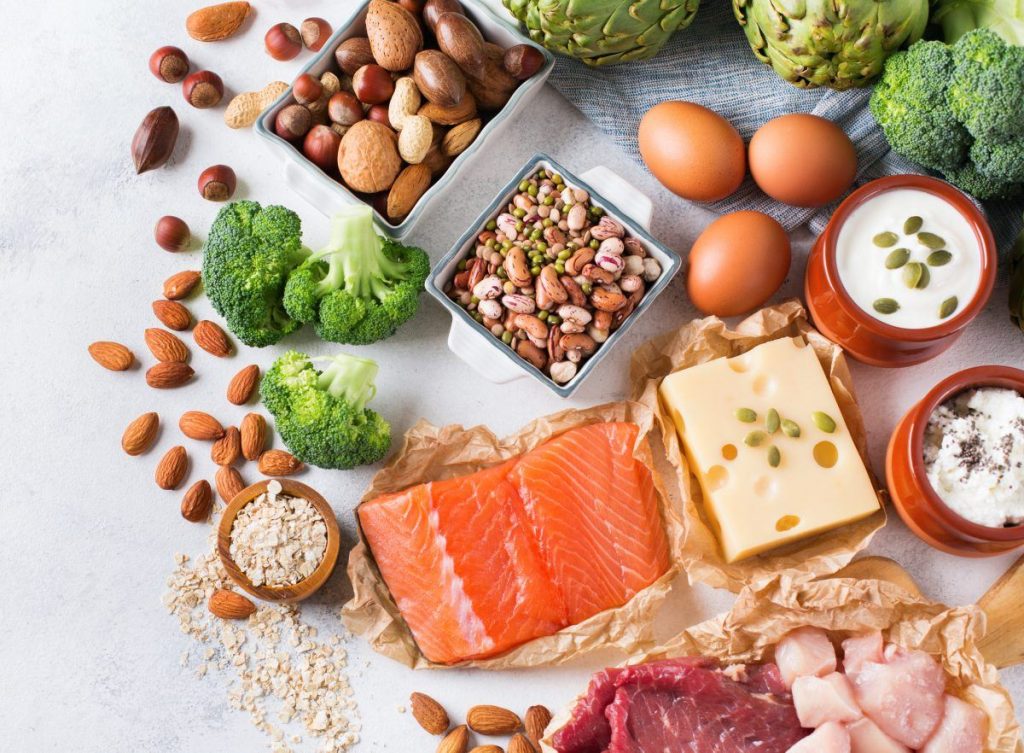There is a general belief and certainty that these supplements help increase muscle mass, especially in strength sports, such as powerlifting, throwing, bodybuilding, etc. The source of amino acids in the diet is protein and the recommended protein intake for a sedentary person is 0.8 g protein / kg body weight / day, although it can be increased depending on their nitrogen balance and voluntary activity. make up to 1 g daily. In sport, this figure can go to 1.2-1.4 g / kg weight / day and even reach 1.8 g / kg weight / day depending on the period of training and / or competition.
Amino Acids
This extra protein increase can be achieved without problems through diet. However, recent research confirms that strength sports require an increase in protein intake up to 2-2.2 g / kg weight / day. Thanks to this, these supplements play a very important role in supplementing the proteins in the diet. Now, if its use does not respect daily dose and exceeds the limits, it can produce toxicity to our body and damage our health.
Therefore, this type of supplement helps rigorously, beneficially and effectively in strength sports. As already mentioned before, generally an athlete, even if they do not perform a strength sport, needs an increase in protein intake compared to a sedentary individual who only performs light activity. More than generating new proteins, this extra supply of amino acids plays a fundamental and very important role in muscle turnover.
Protein catabolism is altered during the practice of many sports and this requires an increase in protein intake. Also sports where trauma is experienced (judo, karate, rugby, taekwondo) need that extra contribution in proteins to restore damaged tissue structures. In most of these cases, the diet can provide that extra contribution, in case amino acids are not a great help.
These supplements are free of fat and cholesterol, making them a great alternative to supplement the diet. Always bearing in mind that this supplementation is carried out under nutritional control.

Branched-chain amino acids
The branched chain amino acids are leucine, valine and isoleucine, they are essential, they play an important role in energy metabolism during the development of sports competition. Most of the body’s amino acids are bound to proteins, although there are reserves of free amino acids in most organs, where the branched chain ones are found. These reserves are minimal and their concentration varies depending on the level of exercise and diet.
The metabolism of branched chain amino acids during exercise helps the muscle to obtain extra energy and to save the expenditure of glycogen stores. In addition, two other amino acids participate in this process, glutamine and alanine. The net result is that the liver provides glucose for the muscle and the ammonium released by the muscle is detoxified by the liver. Therefore, supplements containing this group of amino acids can be useful in power sports where during the course of the same, glycogen reserves are seriously compromised or it is not interesting to reach the maximum with them since they would give a feeling of heaviness and slowness, such as in fighting sports, swimming speed events, or alpine skiing.

Glutamine and amino acids
Gulatamine has a recovery effect after exercise by raising the plasma concentration of bicarbonate (blood buffer system) and promoting glycogen resynthesis. Furthermore, glutamine is the most abundant amino acid in the blood and plays an essential role in other tissues.
Amino acids have a clear beneficial effect on sports performance and recovery after exercise as they delay fatigue and reduce tiredness.



